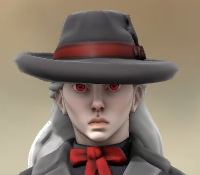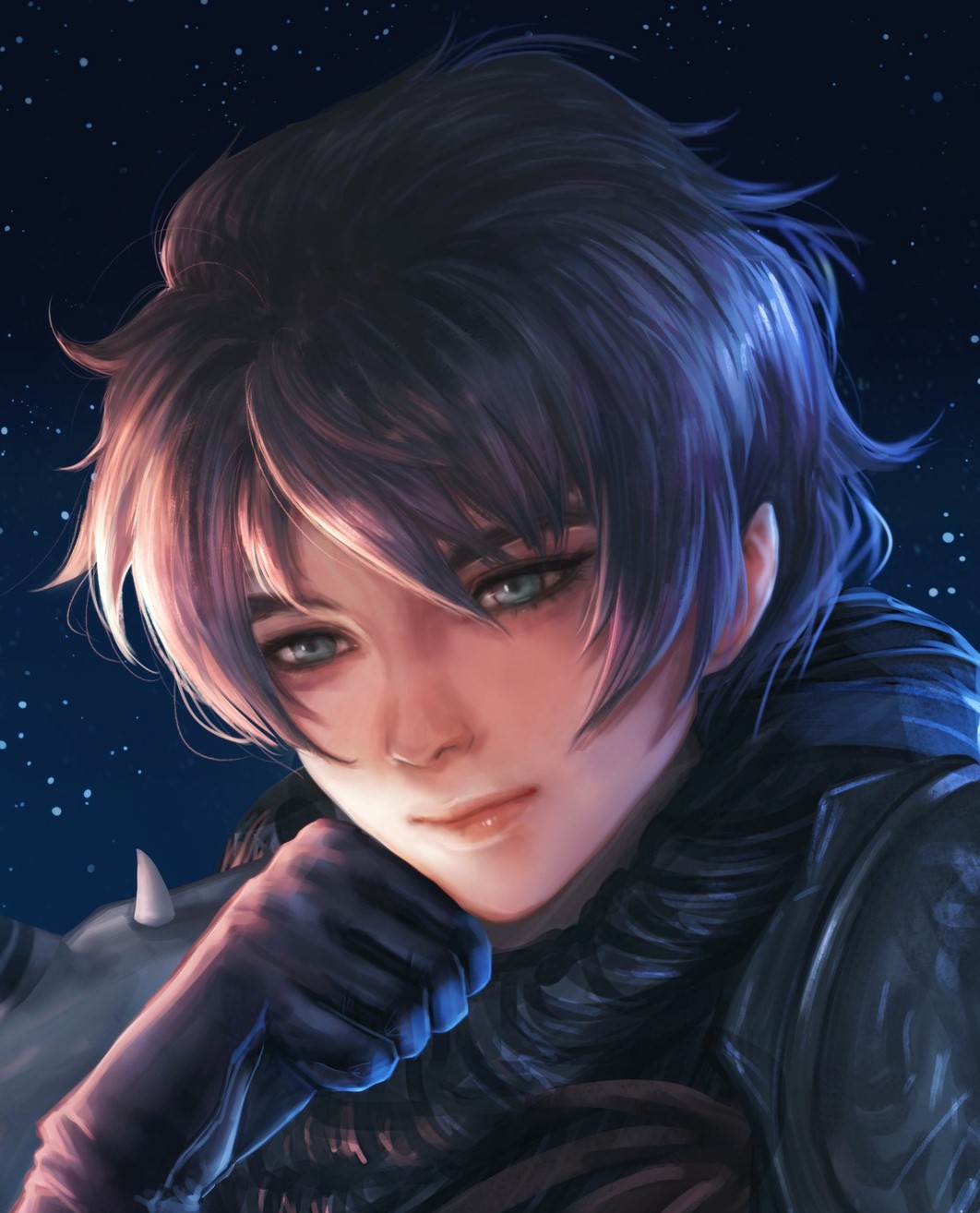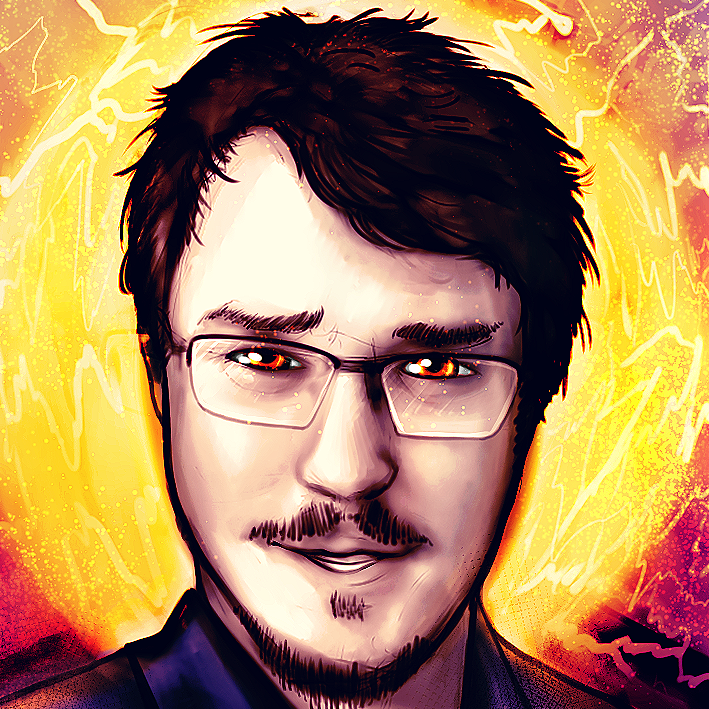Early Life
"Knir Alganvi was by far the worst of all great men"— A saying which Invarvi attributed to his father
Invarvi's early life is not well documented, though it is known that he was born in the town of
Birkov in the
Kingdom of Radinva to a Buvostian father and Radivian mother. Invarvi would have likely grown up speaking both languages on a daily basis due to Birkov's importance as a trade stop on the Vosti river and close proximity to
Buvostia. What is known is that Invarvi's father was able to get him admitted to the Royal Academy in Unlitzu due to family connections. The reasons for the move, however, were more to due with the rising tensions between the two neighboring kingdoms which Invarvi's father feared would lead to war.
Education and Early Adulthood
"The kings and nobles speak of our centuries of division but not of the preceding millennia of camaraderie."— Part of Invarvi's final exam speech
Invarvi was sent to the Royal Academy with the aid of his mother's family connections. He initially faced teasing and mild ridicule from his new peers due to his mixed heritage, something he had never experienced in his hometown and something which only grew worse after Radinva declared war on Buvostia. Invarvi's father had signed him up for an education in statecraft, but Invarvi also took every opportunity he could to study history, particularly the rise and fall of the
Empire of Zinruna which had briefly ruled over all of Zinruna and all Kosva peoples. Invarvi began to believe that the cultural differences between the various
Kosva peoples were superficial and that it was purely politics that kept them divided. As part of his final exam before graduation, Invarvi had to deliver a speech before a visiting member of the Royal Court. He took the opportunity to make an impassioned speech calling for the peaceful unification of the Kosva peoples under a single kingdom. The lecture hall turned riotous and Invarvi was forced to flee through a backdoor. He was subsequently expelled from the Royal Academy.
Rise
"There are over three dozen dialects of Draxu and just over half a dozen of Kosva, yet one is called a language, the other a language family."— A letter from later in Invarvi's life, advocating for linguistic unity
News of Invarvi's speech and expulsion traveled quickly in the midst of the ongoing war. He was forced to flee from the Capital back to his hometown. The people of his hometown and the surrounding regions were much more receptive to his ideals of a unified Kosva people, due in no small part to the suffering that the ongoing war had caused them. Invarvi began to develop his political philosophy over the following years, taking in ideas from sympathetic officials, soldiers, priests, and in particular
Demian mercenaries who had come to fight in the wars. He began to advocate for a model similar to that found in the
Crown lands of Demia; where the smaller political entities managed their own affairs but were united in foreign policy and paid homage to a single leader elected from among the noble houses.
As the war dragged on, Invarvi's movement gained ever more popularity, spurred onward by sympathetic soldiers and underground printing houses spreading the message of peaceful unification beyond the borders of the two warring kingdoms. Ten years after his expulsion from the Royal Academy, Invarvi was declared an outlaw and a royal warrant was put out for his arrest. However, due to the war and the widespread support at all levels in his home region, the king was unable to arrest him. The war continued to drain the resources and manpower of both kingdoms and both had populations that were well aware of Invarvi's message. The combination of these obstacles forced both kingdoms to sue for peace in order to pacify their own population.
Exile and Death
"I've never left my country, only one king's part of it"— On his exile
While Invarvi was elated to learn of an end to the war, he knew that the king's focus would now shift fully to quashing his movement and was forced to flee to either Likovas or Ekoya, the kingdoms neighboring Buvostia and Radinvia, respectively. While in exile, Invarvi continued to publish manifestos and letters for his followers, making sure to have them translated into as many of the Kosva languages as possible, culminating in his most famous work; The
Rebirth, his magnum opus and pinnacle of his political theory. The repression of the "Kosva pan-nationalists," or "Konelsva" as they came to be known, remained widespread throughout Buvosita and Radinva but slowly began to gain more sympathy with members of the royal courts of both nations. This rise in sympathy was contrasted by Invarvi's failing health. The stress of leading a political movement in exile proved too much for Invarvi, who died in the harsh winter of 493 LE.
Legacy
"It may take decades or even centuries, my name may be forgotten by the time it happens, but I can say with confidence that our people will be whole again one day. That is more important than any legacy I could hope for."— Invarvi's final known letter
Shortly following Invarvi's death, sympathy for his movement had gained critical mass within the royal courts of both Buvostia and Radinva and the repression of the Konelsva moment began to subside. Following the assertion of the Konelsva-sympathetic king
Sirov to the Buvostian throne in 496, the movement had widespread support at all levels of society within the former enemies, prompting them to sign a new treaty formalizing the
Konelsva Alliance, the longest standing alliance between Kosva kingdoms to date. In 508 the Alliance would accept the
Likovan Crown into its ranks. From that point to the modern day, the Alliance has dominated politics on the subcontinent. Both within the alliance and abroad, Invarvi is widely regarded as a positive figure who championed peace and brotherhood. The alliance even gave him the honorary office of "Grand Peacemaker" post mortem. Though internal propaganda in the remaining independent Kosva kingdoms paint him more as a rebel and dissonant, he remains a popular figure among the common people with the exception of the
Ultuski Potentate and the
Grand Principality of Bukoosa where linguistic and cultural differences are more extreme than in the other kingdoms.










This is a really strong start to an excellent article! Your writing is solid, and we get a clear picture of what made this leader so memorable. A few suggestions to help polish this article to an even greater shine:
Thanks for the feedback and great suggestions! I'll get right to work implementing them.